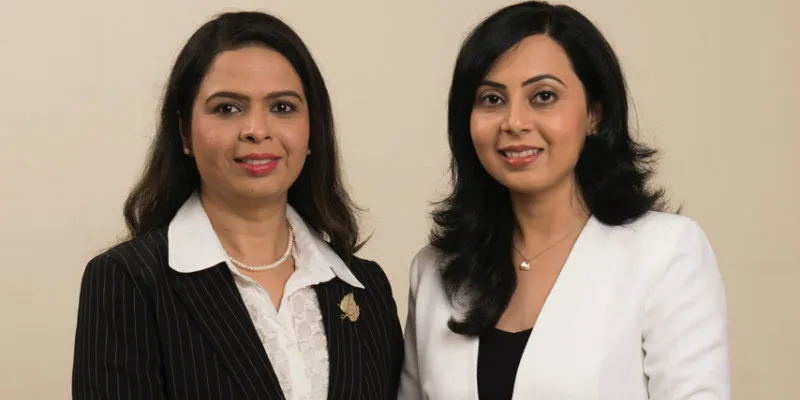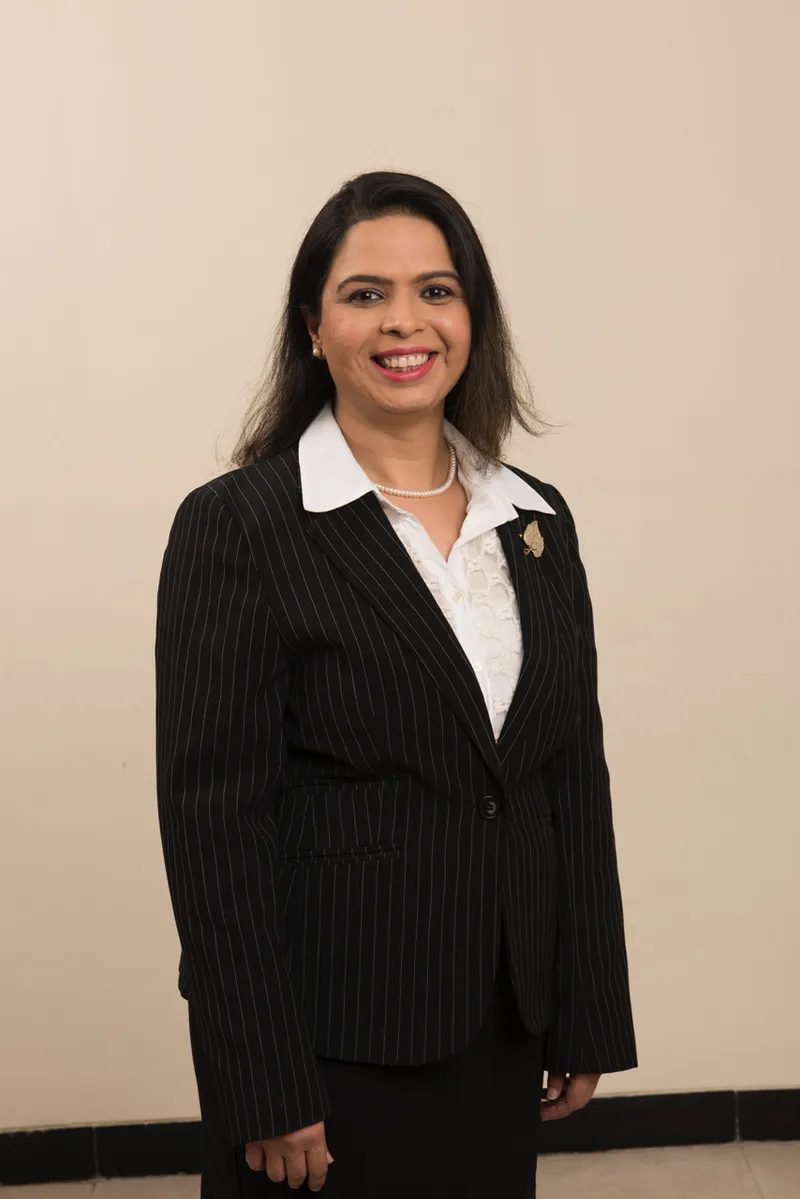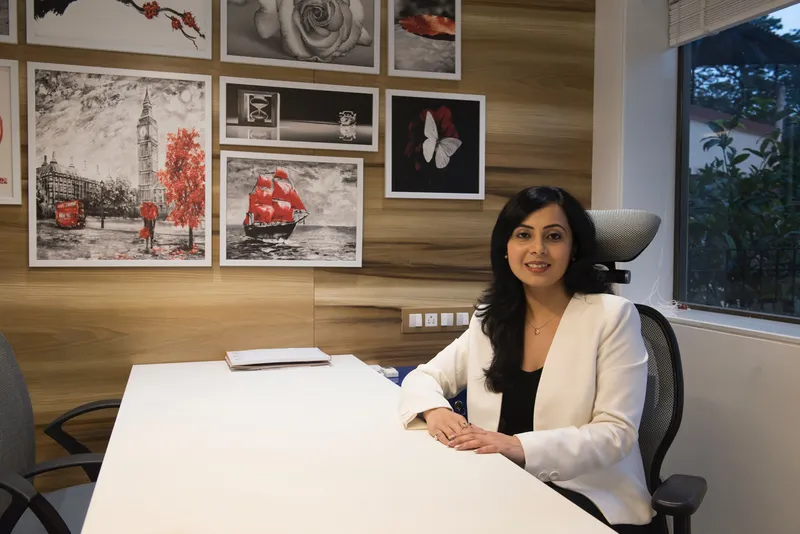These two sisters want to make fertility treatment affordable to everyone
With infertility rising across India, Mumbai-based Dr Rajalaxmi Walavalkar and Dr Anagha Karkhanis started Cocoon Fertility to offer the full range of fertility solutions and support to couples.

In the last few years, the infertility problem seems to have grown manifold in India. The sheer number of fertility clinics that have mushroomed in cities in the last decade or so points to the gravity of the situation.
In an article, Dr Indira Ganesan, Chief Gynaecologist at Irene IVF Centre in New Delhi, writes: “Infertility, in both men and women, has become quite common these days. Research suggests there has been a 20-30 percent rise in the last five years in India. It is no longer an urban phenomenon, nor is it confined to women.”
It is with the intention of helping couples in fertility distress that sisters Dr Rajalaxmi Walavalkar and Dr Anagha Karkhanis started Cocoon Fertility in Mumbai in 2013. With a collective professional experience of three decades behind them, the siblings decided it was time put their expertise in fertility solutions to good use. What makes their venture stand out is the emphasis it gives on making international standard treatment affordable to the masses. Their approach is more “evidence-based” where the couple becomes part of the process and is kept in the know of what to expect next.
A few years into its launch, the clinic witnesses a steady influx of about 500 patients a month.
Cocoon Fertility offers a full range of fertility solutions, from ovulation induction, follicular tracking, fertility investigations, and minimal access surgeries in addition to IUI, IVF, ICSI and more. The clinic also boasts of excellent freezing services for embryos as well as for sperm and eggs. Other high-end procedures like ERA and PICSI as well as testicular sperm aspiration are also offered. Current miscarriage, poor responders, or resistant PCOS, Cocoon Fertility offers all treatments. The IVF lab is located in Thane, and Cocoon Fertility has branches in Dadar, Santacruz, Versova, and Pune.
Dr Anagha Karkhanis, who was trained in Europe and India, was drawn to fertility science because of the precision it involves. Dr Rajalaxmi, on the other hand, was inspired to explore this field, for the challenge, immense satisfaction, and research opportunities it holds.
“We saw a gap in the approach to IVF and decided to work in this challenging field where we could commit appropriately to patients and work towards satisfying outcomes,” Dr Anagha says.
They say that while the basics of reproductive technology do not change, new techniques like platelet-rich plasma are showing better results. “This is an area where the mindset of the couple, the comfort level with the doctor, and science, all go hand in hand. We actively practise educating the clients about fertility prior to starting their treatment,” Dr Rajalaxmi says.
We asked the successful siblings five crucial questions regarding fertility problems to know the issue better and find out what can be done about it.
HS: What are the main causes of infertility in India?

Dr Rajalaxmi Walavalkar: In India, sperm abnormalities in men and hormonal imbalance like PCOS in women are the commonly seen causes. The Indian National Family Health Survey found that infertility rates were highest in women living in urban areas and increased with increasing levels of education. Women are attempting pregnancy at older ages when they are less biologically fertile. When women undergo abortion or delivery in unhygienic circumstances, they may acquire infections that can damage their fallopian tubes, leading to infertility. Tuberculosis is still a worrying cause of infertility in India.
In general, in a woman, common causes of infertility could be
1. Ovulation disorder: There are a variety of reasons why a woman may have no ovulation or irregular ovulation cycles. There can be no baby without ovulation.
2. Blocked fallopian tubes: The fallopian tubes are the pathways in which the ova travel from the ovaries down into the uterus. If there is a blockage in these tubes, the egg and sperm won’t meet to form a baby. This accounts for 25 percent of infertility cases.
3. Endometriosis: This is a common cause, affecting 35-50 percent of the cases. Endometriosis is when the lining of the womb grows outside the womb, in the ovaries or in the pelvis. This can cause “chocolate cysts” in the ovaries, affecting the quality of eggs. Also during periods, this will bleed, causing adhesions around tubes and subsequent blockage of the tubes.
In a man, common causes could be
- Low sperm count: 20 million sperm per ml or more is a healthy sperm count. Anything less than that is considered low sperm count and can hamper the chances of conception.
- Poor sperm health: This includes sperm motility (movement of the sperm, tail whip), morphology (shape/proper formation of the sperm), and sperm DNA fragmentation. Smoking and alcohol are known to negatively affect both sperm count and sperm health.
HS: This is 2018. Has the stigma around approaching a fertility expert diminished in the country?

Dr Anagha Karkhanis: The stigma of infertility is still strong in most parts of India and, most often, it is women who bear the brunt. It is unfortunate to see that it is the women who are generally stressed and feel inadequate due to the couple’s infertility. Unfortunately, women too feel that without children, their lives are without hope.
There is a certain amount of reluctance in accessing care. It is viewed as a proof that there is a problem. Society perpetuates the concept of inadequacy when a couple is not conceiving and people may feel shy to approach a doctor. Fear of the unknown may also hold couples back. Or sometimes, they are simply in plain denial. Financial constraints may be another factor.
When it comes to fertility treatments, it is important to take one step at a time. The stigma will go away if you understand your situation. Let your doctor know your apprehensions. With knowledge comes both faith and empowerment. Not all patients need IVF. Your situation is unique to you and a correct plan can be made for you after assessment. You are not alone, and there is no need to be embarrassed.
HS: What would you like to see changed in our approach to fertility problems?
RW: From a fertility doctor’s perspective, I would like to see that infertility is no longer a taboo but just a medical condition, like say, diabetes or hypertension. I would like my patients to be more willing to seek information and ask questions. I would also like to see an empowered patient.
On behalf of my fraternity, I would like to see more emphasis on patient and public education. A regulated industry, with regulations that keep the service safe for both the patients and the doctors, is needed. I would like to see more clinical research being done in India to improve the care that Indian patients get. I would also like to see infertility treatments covered by insurance making treatments more affordable for the patients.
HS: How important is a good diet to avoid difficulty in conception? Do you have some tips on that?
AK: You are what you eat. A good diet and optimisation of micronutrients and vitamins are not only important to improve the quality of eggs or sperm, but also for good quality embryos and healthy pregnancies. We, at Cocoon Fertility, run a medical nutrition programme that gives individualised diets to improve nutritional level and health. It’s best to start the treatment when your weight is optimum and after vitamin deficiencies, if any, have been addressed.
HS: How can one detect fertility problem early on so it’s not too late to seek help?
RW: Generally, people approach a fertility specialist after trying for some time. If a woman’s age is less than 35 years, the couple can try for a year before seeking help; if she is between 35-40 years, the couple can try for six months before seeing a doctor. But for older couples, the intervention needs to be immediate. If you have any medical condition, you may want to see a specialist even before starting to try so that the condition may be controlled so as not to affect conception and pregnancy.
Men, too, need to be aware of the age aspect. While some men can father children into their 50s or 60s, male fertility isn’t age-proof. The quality of a man’s sperm decreases with age. As a man ages, it takes longer for his partner to get pregnant. There’s also an increased risk of not conceiving at all. Whatever the age of the mother, the risk of miscarriage is higher if the father is over 45 years of age. The children of older fathers are at greater risk of autism, mental health problems, and learning difficulties.
In fact, if for some reason you plan to postpone childbearing, it will be a good idea to check your fertility potential to be able to plan accordingly. A simple semen analysis test for the man and a serum AMH blood level for the woman suffice as screening tests.











